
From The Bandcamp Vaults #2
…
Welcome to the second edition of From The Bandcamp Vaults, a column dedicated to our favorite recent Bandcamp finds. We’d like to pretend that it’s difficult purusing hundreds of bands in pursuit of the best, but really it’s quite fun. Not only are we discovering new and lesser-known acts to promote, we’re also revisiting classics available in a lossless format and passing along tremendous discounts on entire label or band discographies.
As always, you can aid in our search by sending in either your band, or worthy bands you’ve found to [email protected]. Party on!
…
Free (or might as well be)

After giving it much thought, Portland, OR’s Ape Cave can best be described as Northwest in sound. Pillars of Evolution, their debut album, shows strong elements of doom and stoner rock, but they’re delivered with both a blues swagger and a math-metal aesthetic; plus, the heavy guitar reverb gives the riffs a psychedelic edge. The slower moments of the album evoke Botch or Helms Alee, particularly the riffs on “Pharaoh’s Eclipse,” while the rockier sections summon Red Fang, supporting the claim that Ape Cave embody the genreless spirit of the region. Stoner rock has become quite stale but the simplest rock riffs here have intriguing tricks, like on “Road to Ladakh.” The growled vocals serve the music and occasionally veer into grunge territory, while the drumming is perfectly restrained. They seem young from their photos but play much older than their years, which makes their great musical sensibilities that much more impressive. Pillars of Evolution truly sounds like an evolution of a sound, which coupled with its phenomenal production, is an encouraging sign of the next generation of metal.
…
…
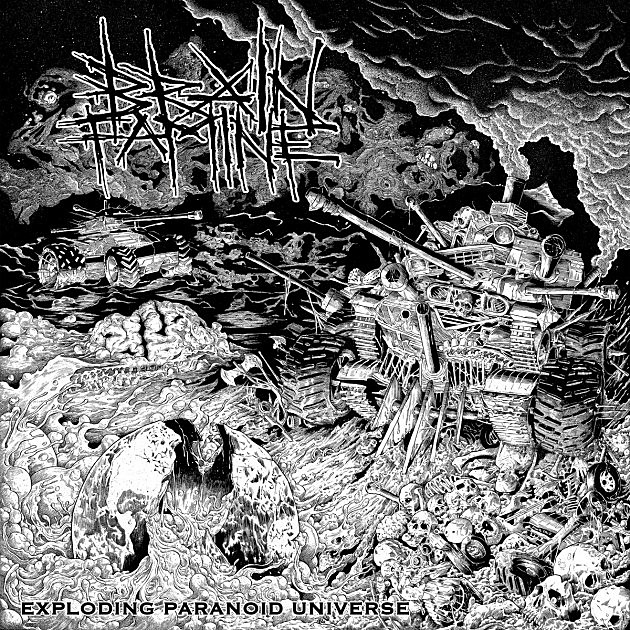
Their bio reads, “Brain Famine‘s sole purpose is to create a violent collision of shredding thrash, grind, and death metal,” and I’m hard-pressed to think of a better description. Once it gets going, Exploding Paranoid Universe doesn’t relent from its blitzkrieg marriage of old-school death metal and grindcore, much in the vein of Assück. The pace and intensity with which they play is spectacular, but they’re able to keep things fun and moshy, particularly on “Ignite & Repeal” and “Personal Violence.” This quality lends them more of a punk rock spirit than traditional death metal, conjoint with some old-school crossover thrash. The guitar solos here deserve a special mention, as they emulate better than most the dips and squeals of classic death metal guitarists. The old-school crust punk of “Selfward While Blind” presents the only minor variation in sound, but otherwise the Massachusetts trio delivers exactly what they promise.
…
…

Spotlights are smooth. Like, buttery smooth. Every second of the New York duo’s five-track debut oozes with sensuality. There’s a lot of Jesu in the way Sarah and Mario Quintero move from one idea to the next, or introduce a new melody entirely. Listen to the way they work in that shimmering synth lead in “The Fire Walk.” By the time it’s stuck in your head come the song’s end, you realize every piece of the song has echoed the same melody in different permutations: guitars, bass, vocals. It’s those vocals that most recall Justin Broadrick; both Quintero’s sing in a soft croon, almost a whisper. There’s a reserved nature to these songs that even the riff workout in the latter half of the appropriately titled “Mosh Pit to Mogwai” can’t disrupt. The sliding bassline that leads the song is perfectly amiable faced with such an interruption, simply gaining distortion instead of pushing back against the sudden aggression. Again, smooth.
…
…

Is there any genre on the planet that embraces folklore with more all-encompassing fervor than metal? I think I’ve learned about a wider range of mythology from simply Googling a band’s name than I ever did in any high school or college course. Case in point: Witte Wieven translates into “wise women” in Dutch. These women were the medicine healers in their villages, and were said to be so spiritually strong that when they died their spirits remained on earth in the form of mist hanging over gravesites. True to its moniker, Witte Wieven the band is the project of a nameless Dutch woman, an unidentified wandering spirit. Her spectral voice haunts these songs like the ghosts embodied in hanging fog, her distant cooing echoed over harsh Burzum guitar drones and some punchy drumming. Witte Wieven is going to get a lot of comparisons to Myrkur simply because of the bandleader’s gender, but to these ears, Silhouettes of an Imprisoned Mind carries a much more consistent and compelling black metal atmosphere than Amalie Bruun’s project, Garm or no Garm.
…
…
Full Price
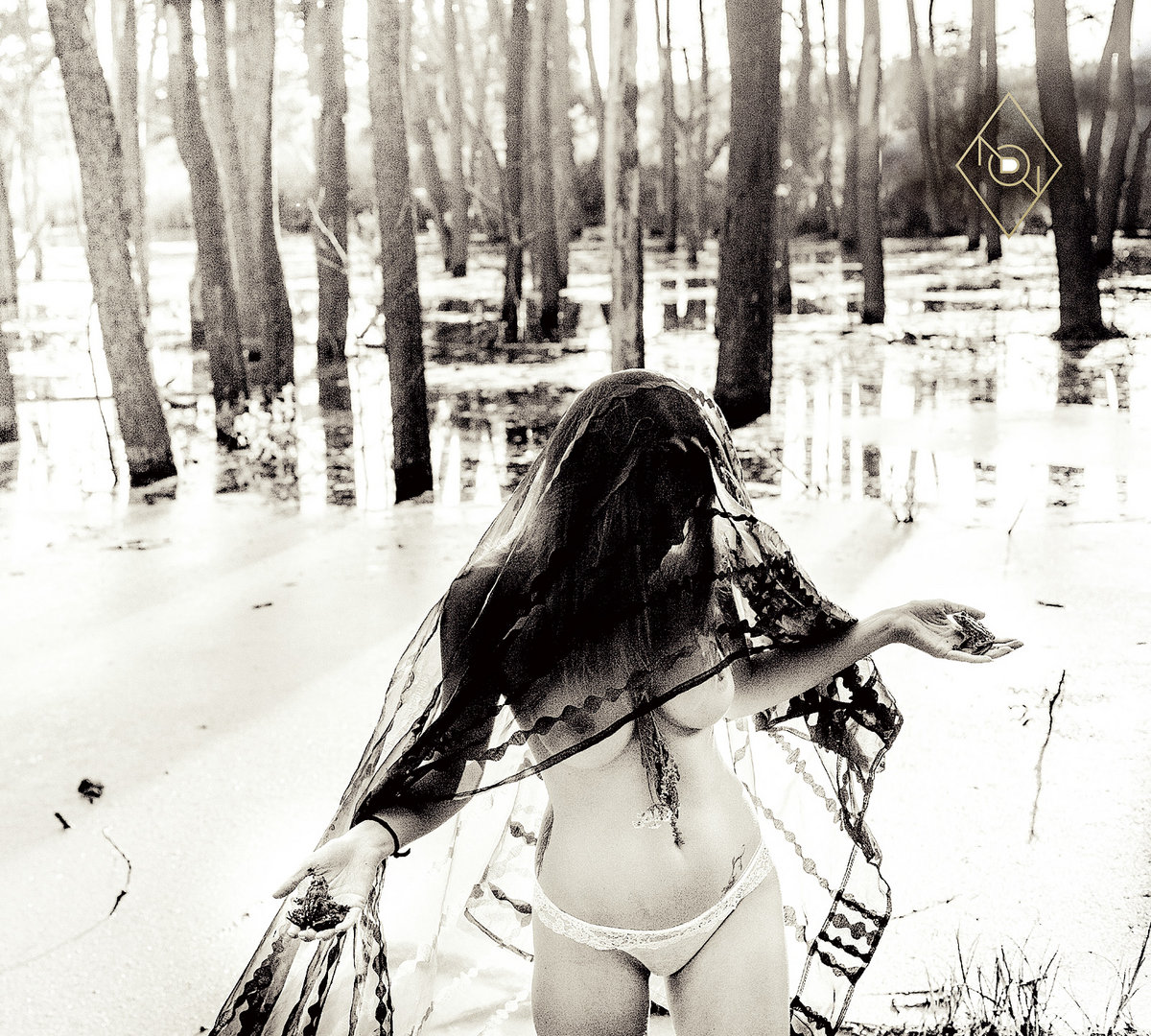
How Diabel didn’t make it onto at least half of 2015’s best-of-lists is beyond me. It is nothing short of an epic slab of progressive black metal, much in the vein of Deathspell Omega, with songwriting as catchy as it is heavy. Non Opus Dei have a knack for developing strong musical themes and tweaking them every so slightly through the course of a song. They can successfully slow down their assault (“Władca Ropuch”), get downright black-math-metal (“gold-finding Hen, kiss-finding Whore”), or simply pummel the hell out of your senses (“The Tenfold Gift”). No matter which direction they choose, the outcome is outstanding. Album opener “Milk of Toads” perhaps best captures their all their triumphs at once, a feat fueled by the insane drumming of Gonzo. As far as inspiration is concerned, their Bandcamp explains, “The lyrics and the idea behind the album are inspired by the cult of the Devil (Diabeł) in Poland, with an emphasis on the territory of Warmia.” On their seventh album, the Polish group have crafted an astonishing piece of work that respectively pays homage to the deity.
…
…

Perhaps it’s unfair to always cite Deathspell Omega when listening to really good discordant black metal but, if anything, it’s a compliment of the highest order. Not only do Grey Heaven Fall channel the French masters, but there are elements of death metal greats like Ulcerate and Angelcorpse throughout. With those sorts of references surfacing, it’s safe to say that the Russian group successfully taps into great metal tones and harmonies, despite Black Wisdom being only their second full-length. If you’re looking for some serious riffs, look no further; the opening to “Spirit of Oppression” will have you looking for something to kick instantly, and album highlight “Tranquillity of the Possessed” leaves you a bit dizzy with its barrage of time changes and jarring harmonies by its conclusion. Both of these tracks, as well as closer “That Nail in a Heart,” demonstrate how Grey Heaven Fall excel at allowing great riffs to breathe. Listening to that restraint, it’s easy to think you’re listening to a seasoned band with several releases under their belt. That not being the case, future releases should only get more interesting.
…
…
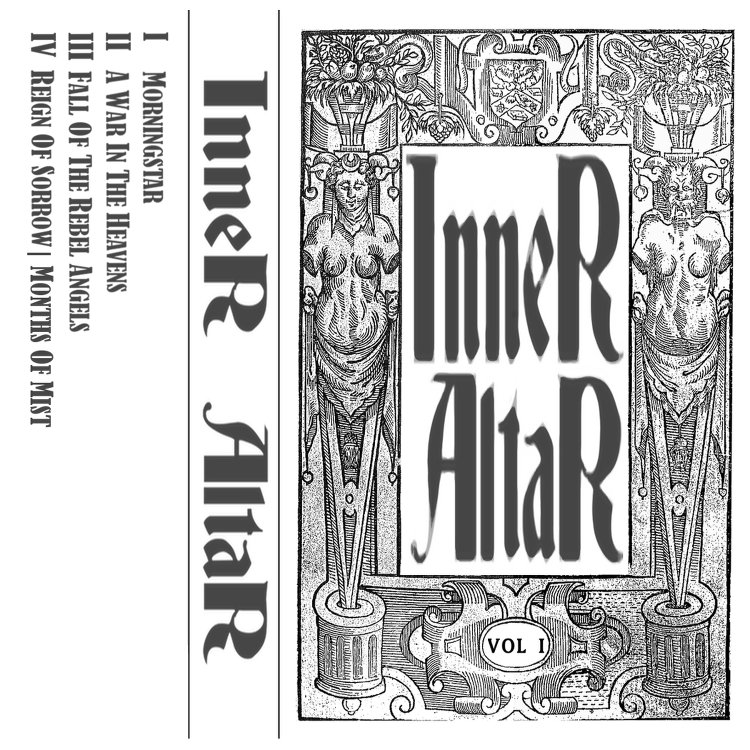
Ever wonder what Witchcraft would sound like if they stopped tinkering with their sound after Firewood? Inner Altar is the answer. The Kansas City quartet rumble and roll through their Pentagram-worshipping proto-metal vibe as recklessly as the Swedes did on their early LPs. Opener “I Morningstar” starts serenely enough with delicate, Medieval-tinged guitar phrasing. And then come the riffs, one after the other; and they don’t stop. , shuffling its walking bassline intro to an explosive psych-fest. The band chooses to remain unidentified as to who plays what on Vol I, so I’m not sure who to praise for the stupendous guitar playing. Whoever the hell is slinging riffs has a deft command of groove and melody, never sacrificing a great hook for anything showy, but still ably displaying his chops. What I really love is that it’s very clearly one electric guitar track, as you can hear during at 5:04 on “I Morningstar,” when everything drops to drums and bass and the dude uncorks a wailing solo. Couple that with the vocalist’s paranoid, wide-eyed croon and you’ve got the concoction for one nasty trip, man.
…
…
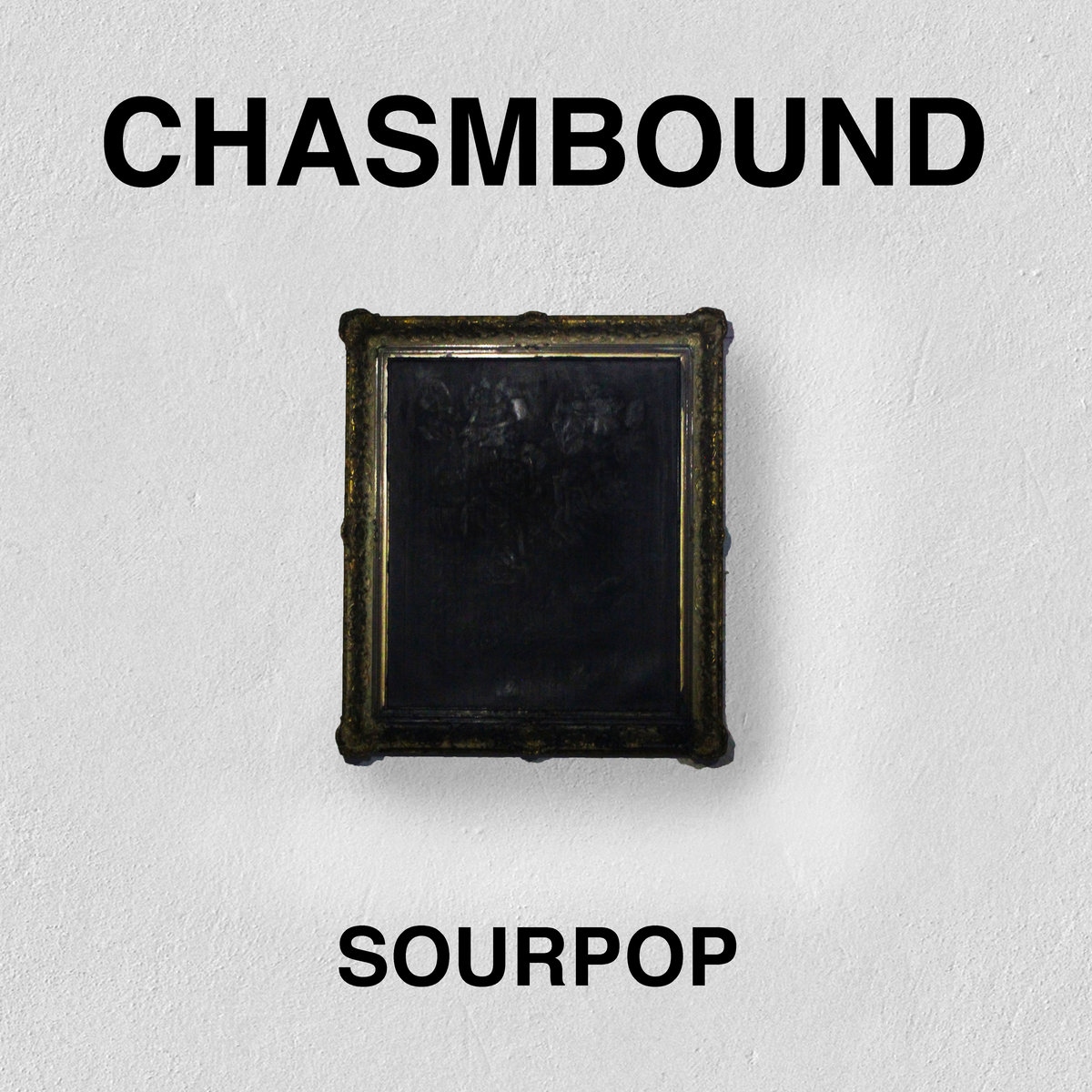
I can’t think of a more appropriate title for this Chasmbound’s debut. Like A Pregnant Light and An Autumn for Crippled Children, the NYC solo project constructs recognizable pop song structure and laces them with threads of post-punk and harsh black metal. Unlike those bands, however, there’s an unmistakably urban sensibility to Sourpop, a twitching angst and nervous energy that can only come from a life lived among millions of others. The few intelligible lyrics that filter through Jun’s screeching address the love-and-hate relationship big city-dwellers have with their surroundings. It’s telling that the only truly clear line in “Monochromatic”’s chorus is Jun desperately crying “The city that never sleeps.” It’s a cognizance of one’s environment, barely containing the urge to thrash out, a grit and attitude wrapped in a digital sheen. Guitars are almost singular in the mix, sitting individually from everything else with their bits and bytes exposed to an extent only seen in djent. Chasmbound are still finding their sound here, but when they hone in on what works – like the hook-laden title track with its Don Anderson-esque guitar solo – they show a distillation of influences both environmental and musical that is almost impossible to narrow down. Sourpop is a melting pot.
…
…
Classics:
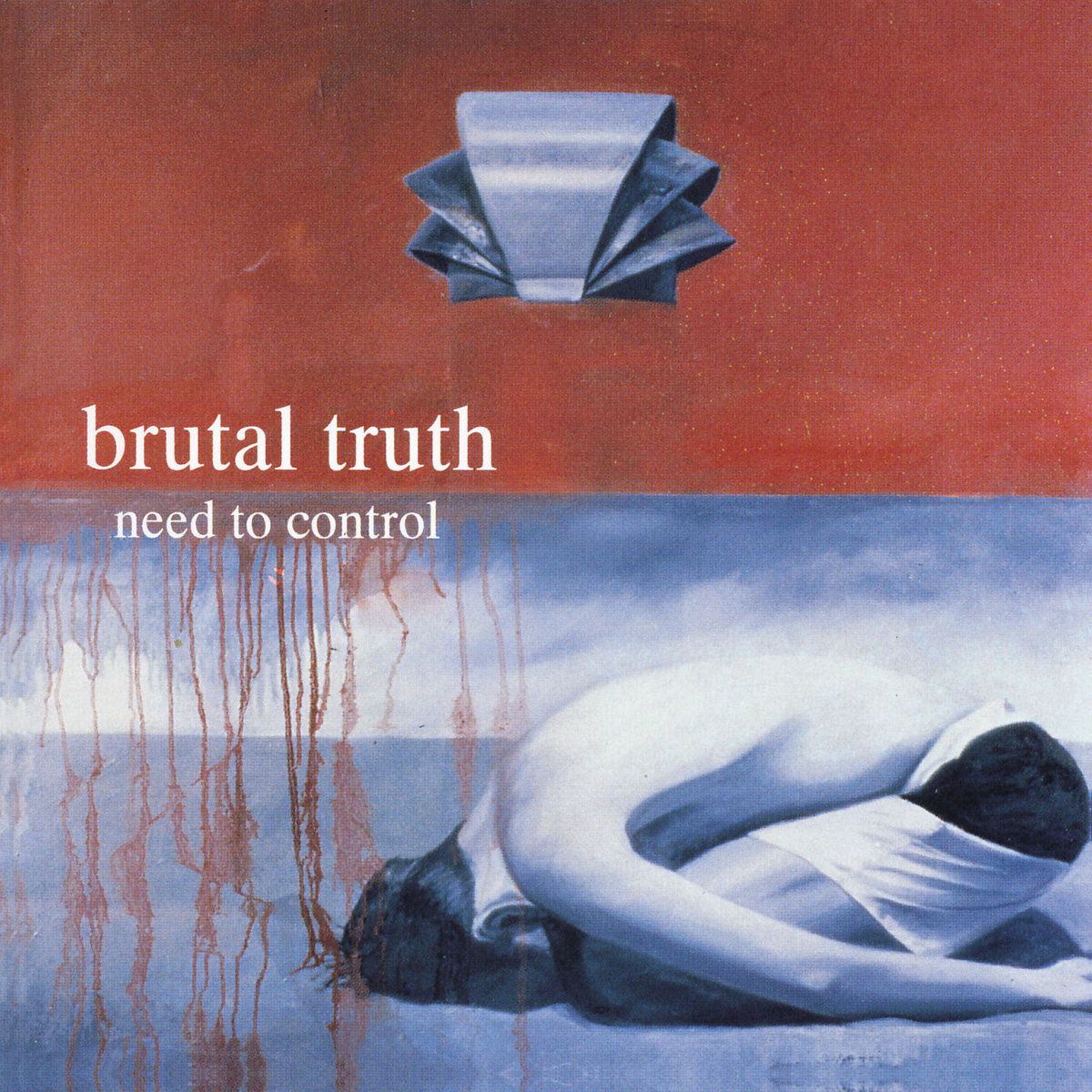
As if you need to be convinced of its importance, re-listen to the mammoth main riff of opener “Collapse” and tell me that Need To Control is not a pivotal album in grind and metal history. Just a few years earlier, Brutal Truth unleashed the awesome Extreme Conditions Demand Extreme Responses, an album that many feel is the better of the two, but Need To Control was never meant to be a sequel. Instead, it reflects a tremendous band pushing the limitations of the grind-tag into great heights; in short, they were making a solid piece of art solely for themselves. Who else in 1994 was releasing albums with grind assaults, experimental noise tracks, doom and sludge jams, and punk rock covers, alongside tracks like “Godplayer,” which mixed the grind and punk with death metal and rock-n-roll? Even the few samples used sound like they’re taken from blaxploitation films, which was certainly not a hackneyed move at the time. Given all that influence, it’s incredible not only how well the tracks play in sequence, but how memorable they are. It’s clear that, at the time, Brutal Truth did not want to align too closely with any one scene, and subsequently not feel restricting expectations from their audience and label. If you’ve never sat through Need To Control, do so now; if you have, a reminder wouldn’t hurt.
…
…
Discount Discographies:

Danish director Nicholas Winding Refn has stated the origins for his surreal 2009 semi-historical drama Valhalla Rising came from the discovery of Viking runes in Delaware. If Mads Mikkelsen’s steely, silent protagonist had made his way to Canada to form a metal project instead of (SPOILER!) being clubbed to death by natives, it might sound something like SIG:AR:TYR. The one-man band from London, Ontario plays Viking metal in the Falkenbach vein: extended acoustic passages, alternating black metal screeches and choir-ish vocals, overall plodding tempos. On the sub-genre’s spectrum from triumphant to mournful, SIG:AR:TYR sit decidedly on the latter side, directly opposed to the blackened folk of Thyrfing. While his gorgeous acoustic guitar work is intricate and tasteful, it’s mainman Daemonskald’s plentiful guitar solos that set his project apart from its peers; and they grow in length and beauty throughout his discography, more lament for allies lost than kiss-off to enemies vanquished. Godsaga is the latest and best, but you can nab all four releases for a cool $20 if you want to get caught up for the upcoming Northern, due on Hammerheart Records in March.
…
…










